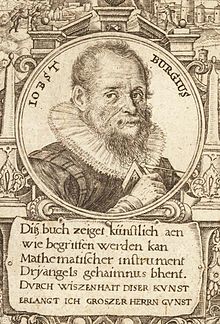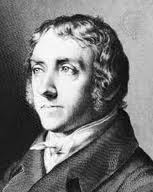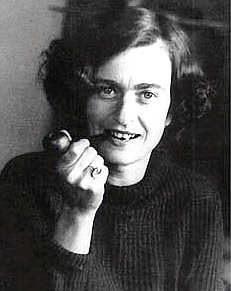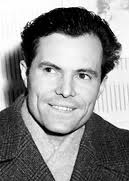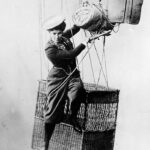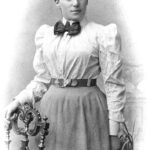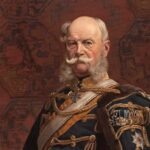January 31, 1632
Death of Joost Bürgi (1552-1632) in Kassel, Germany. A watchmaker, astronomer and mathematician, Bürgi invented logarithms, possibly as early as 1588 and had compiled his logarithmic tables by 1603. (The Scottish mathematician, John Napier, who is often credited with the invention in British histories, invented logarithms independently and published his tables in 1614.)
January 31, 1741
Birth of Theodor Gottlieb von Hippel in Gerdauen, Germany (now in Russia). Hippel was the mayor of Königsberg and a novelist. Among his works are Lebensläufe nach aufsteigender Linie (1781) and Über die Ehe (1774). Hippel was devoted to the ideas of Immanuel Kant.
January 31, 1746
Birth of Friedrich Ludwig Hohenlohe-Ingelfingen in Ingelfingen, Germany. Hohenlohe-Ingelfingen was a general of the Prussian army in the battle against Napoleon at Jena in 1806 in which the Prussian army was crushed and Prussia became a dependency of France.
January 31, 1797
Birth of Franz Schubert in Himmelpfortgrund, Austria. Schubert studied music in Vienna where one of his teachers was Antonio Salieri. Schubert is best known for his symphonies and Lieder (the best known of which are “Erlkönig”, “Gretchen am Spinnrad” and “Die Forelle”) but he also wrote excellent music in other genres.
January 31, 1831
Death of Barthold Georg Niebuhr (1776-1831) in Bonn, Germany. He became the Prussian state historiographer, member of the Berlin Academy of Sciences and lecturer at the University of Berlin. In 1816 he became the Prussian ambassador to the Vatican. As a part of his studies of ancient history he developed a critical method of doing history, thus bringing it to a scientific level.
January 31, 1848
Birth of Nathan Straus (1848-1931) in Otterberg, Germany. Straus immigrated to the U.S. where he became co-owner of Macy’s department store in New York. Besides being a very successful retailer, he is remembered as a philanthropist. During the depression he provided food and coal for the poor in New York City. In 1909 he built a tuberculosis facility for children in New Jersey.
January 31, 1854
Birth of Ludwig Pastor in Aachen, Germany. Pastor, who was a professor of history at the University of Innsbruck and later the Austrian ambassador to the Vatican. Pastor’s major work was the 16 volume Geschichte der Päpste seit dem Ausgang des Mittelalters (1886-1933).
January 31, 1866
Death of Friedrich Rückert in Neuses, Germany. Rückert was a poet who taught oriental languages and literature at the universities of Erlangen and Berlin. He is remembered largely for his lyric poems. Collections of poetry by Rückert include, Deutsche Gedichte (1814), Kindertotenlieder (1834), and Liebesfrühling (1844). Gustav Mahler set the Kindertotenlieder to music in 1902.
January 31, 1884
Theodor Heuss born in Brackenheim, Germany. Heuss was the first president of the Federal Republic of Germany. He was a member of the FDP (Freie Demokratische Partei) of which he was a founder. During the Nazi period his books were burned as “un-German”.
January 31, 1901
Birth of Marie Luise Kaschnitz (1901-1974) (born von Holzing Berstett) in Karlsruhe, Germany. Kaschnitz was a novelist and poet. She is considered to be one of the leading post-war German poets. Among her books are, Liebe beginnt (1933), Totentanz und Gedichte zur Zeit (1947), Zukunftsmusik (1950) and Lange Schatten (1960).
January 31, 1917
Germany, concerned about American public opinion, had taken a policy on May 10, 1916 limiting submarine warfare. On January 31, 1917, however, unrestricted submarine warfare was reinstated. The U.S. broke diplomatic relations on February 3.
January 31, 1925
Death of Ulrich Wille in Meilen, Switzerland (born in Hamburg, Germany). Wille was a Swiss army officer. After study of Prussian army organization, he reformed the Swiss army along those lines. He published a new cavalry code in 1892. During World War I he was commander in chief of the Swiss army.
January 31, 1929
Birth of Rudolf Mössbauer (1929-2011) in Munich. Mössbauer, a physicist, won the Nobel Prize for Physics in 1961 for his discovery of the Mössbauer effect, a means for the measurement of the magnetic field of atomic nuclei. He was a professor at the Technical Academy of Munich.
January 31, 1943
German general von Paulus surrenders at Stalingrad in World War II.
January 31, 1958
The U.S. under the leadership of Wernher von Braun and his team launches its first satellite, the Explorer 1.
Back to Today in German History Calendar
